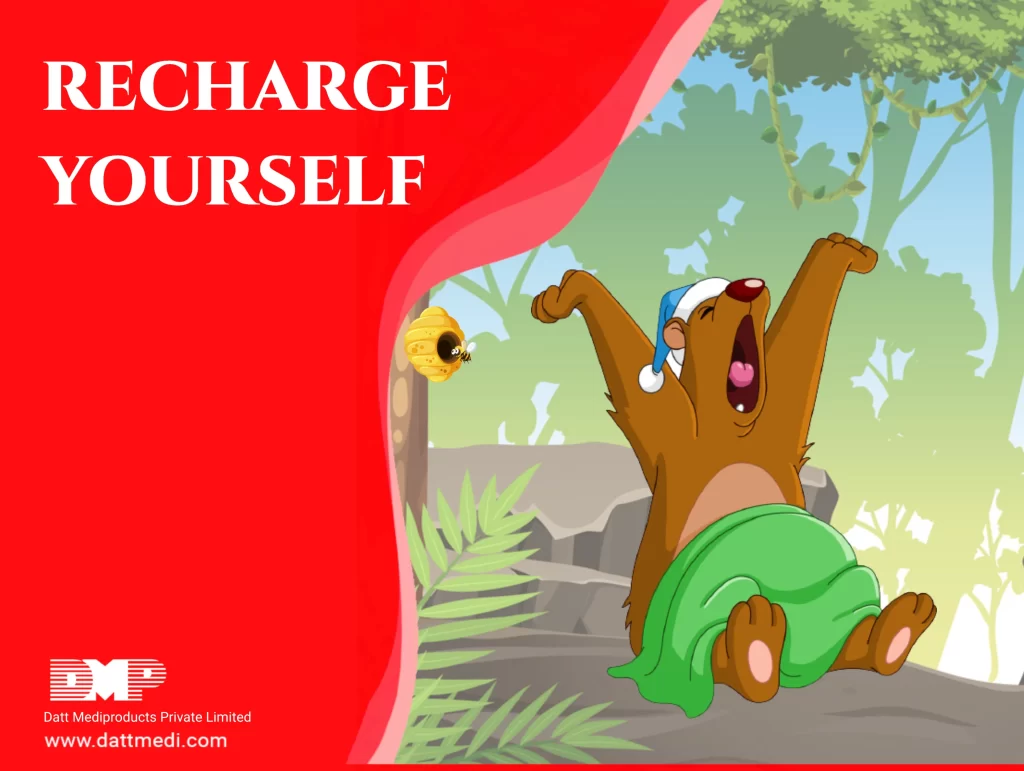
Long working hours, desk jobs with no physical exertion, and extensive use of gadgets are a few prime reasons for a stressful lifestyle. The Covid 19 pandemic has added Work from Home as a new normal and has further aggravated stress in day to day life.
We have started working longer while shuffling between office and household chores, leading to burnout. Recent study by Monster found that 69% of employees working from home are experiencing symptoms of burnout.
Burnout is nothing but a situation where we feel totally exhausted and start disliking things which we used to enjoy before. At times it can have a catastrophic impact on our health, family, job and relationships.
Stress leads to a disillusioned state of mind and not having the ability to concentrate or pay attention on minor jobs. This psyche not only impacts our professional life but also our personal relationships.
Spot the Red flags
– Physical and mental exhaustion
– Emotional and physical detachment from activity which you enjoy
– Lack of enjoyment
– Reduced performance
– Change in appetite or sleep habits
– Compromised immunity leading to frequent illness
– Getting frustrated and irritated by small things
What is the way out?
You charge your mobile phone daily then why not yourself!!!
Many ways to relax include meditation, going for a stroll, listening music of choice, reading and visiting family and friends.
Nurture your hobby – Try to invest time in hobbies like gardening, cooking, painting, writing and many more. Indulging in activities like sports, fitness, social activities and volunteering programs increases feel good hormones and raises a sense of accomplishment.
Disconnect – At times it is necessary to unplug from the outer world and have me time. Keep mobiles, tabs and other gadgets at bay during dinner time and have ample family time.
Ample sleep – Try to have seven to nine hours of undisturbed sleep. Follow the old saying – “Early to bed early to rise makes a man healthy, wealthy and wise”. Practice putting cell-phones on “Flight Mode” or “Do Not Disturb” during sleeping hours.
Afternoon Naps – Short midday snoozes are really big energy boosters. As per the study conducted by psychologists and behavioural sleep disorder specialist napping improves performance, boosts memory and helps face frustrations.
Getaways – Short vacations for a few days breaks the monotony and gives the experience of different emotions. Getting close to nature improves our mood.
Mindfulness – Mindful meditation involves deep breathing and self awareness. This reduces feeling of anxiety, anger, depression and confusion. According to Georgetown University Medical Center’s Department of Psychiatry there is a sharp decline in stress-hormone after taking mindfulness meditation courses.
Exercise and Stretching – When we exercise, Endorphins are released and they are natural pain relievers and mood up-lifters. It is good to indulge in yoga or aerobic class to relieve stress and revitalize your body. Going for a walk or cycling leaves us energized for hours.
We @dattmediproducts recommend you to take some time out just for yourself, understand your needs, recognize the signs. Consider activities which could help recharge you both physically and mentally.
Relaxation repairs our body itself and boosts our immunity this in turn keeps us well and increases our life expectancy. Moreover, it helps you to maintain healthy relationships with your loved ones. Remember, it is important to find what exactly is draining you and the next step is to find the best way to recharge yourself as per your temperament.




